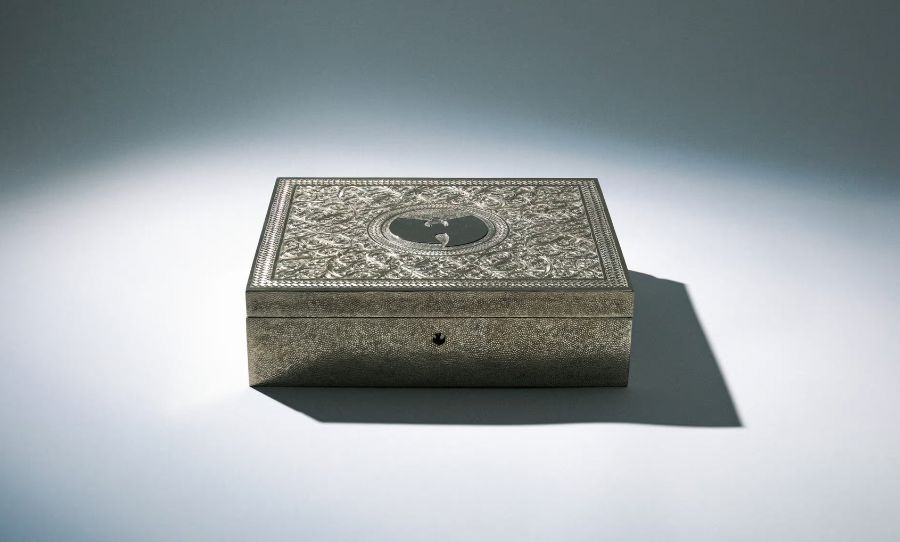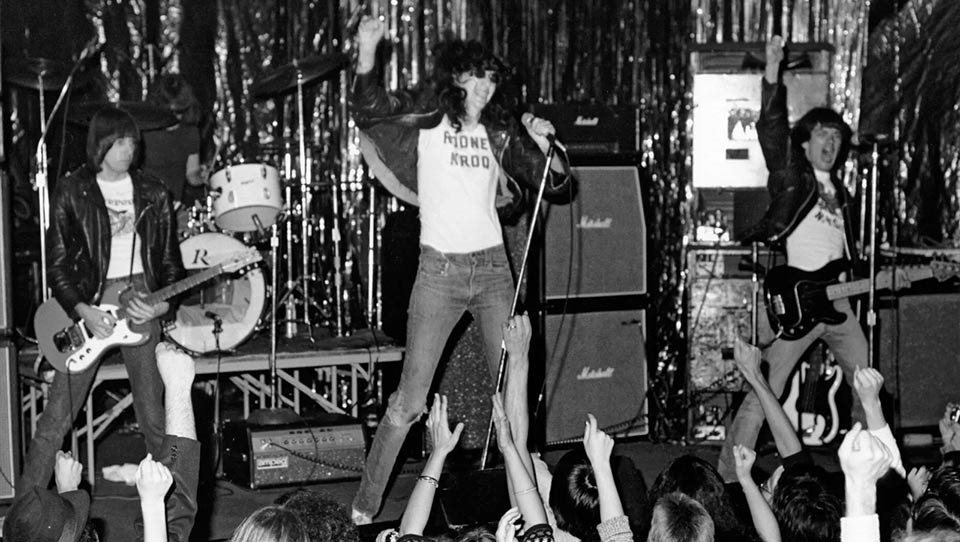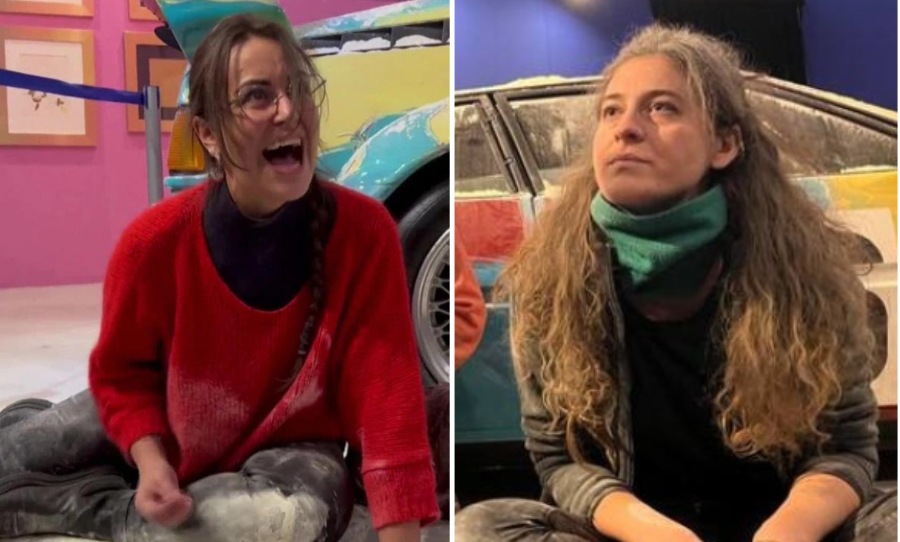Having both released their debut singles in the last year, you’d think Harley Mavis and CLEWS were only just sinking their teeth into the music biz. That’s where you’d be wrong, the lot of them boasting years upon years of gigging and industry experience between them.
As they both begin to make a name for themselves amongst their Aussie compatriots, we sat Harley down with CLEWS’ Lily Richardson for a chat.
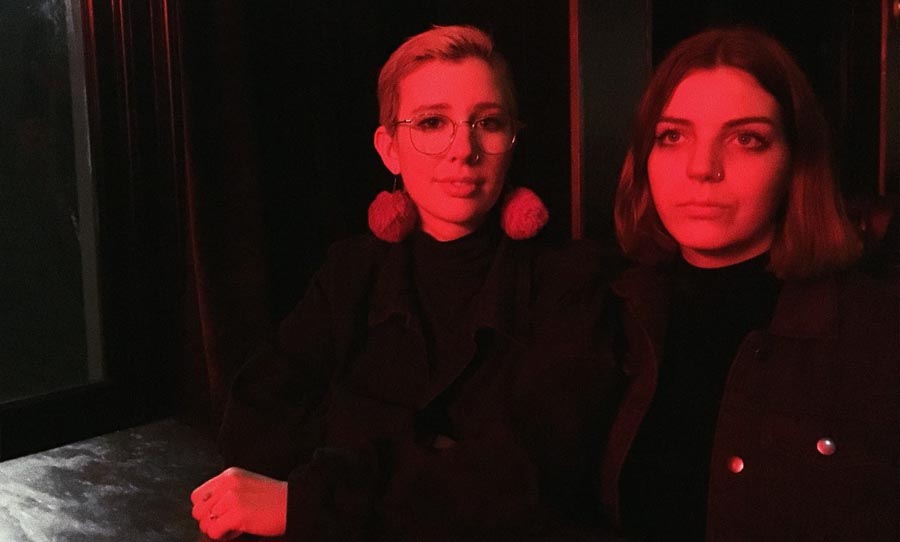
As Harley Mavis and CLEWS begin to tackle the scene, we sat both bands down to discuss influence, songwriting, and what it means to be a woman in Aussie music.
LILY: Hey Hannah, what music are you listening to right now?
HARLEY: I’ve been listening to the new Courtney Barnett album, and then to the new release from Odette which is PHENOMENAL.
LILY: Do you think that in this day and age it’s acceptable to separate their identity from their artist identity? How important do you think this is?
HARLEY: I think it’s important in terms of my artistry to separate the two and be able to express yourself through your alter ego in creating music and and an artist image.
LILY: When people listen to your music do you want them to know who you are as a person?
HARLEY: Oh totally, and I think it is so important to have elements of your personal life reflected in your art. For me a big part of who I am as a person makes up Harley Mavis, but I do think differentiating the who Hannah is as opposed to who Harley is is important for me as a performer.
LILY: In your songwriting do you feel like all your songs are autobiographical or fictional characters/situations?
HARLEY: I definitely find in my songwriting, the situations and relationships I experience are far easier to write about than fictional things or writing about an idea. What about you?
LILY: I definitely think my songs are self reflective but there are characters in my stories that I don’t know if they come from real life places or like you were saying are just ideas. But I definitely feel like the majority of them come from real life.
We were talking about artist identities, do you think it’s important for local tastemakers to diversify the scene here locally because it is such a big topic in the media right now?
HARLEY: TOTALLY. Not only is it important for me as just a female artist writing indie rock music in such a densely male dominated scene, but to be a queer artist who is visible in the scene is just so important. Because for me growing up there wasn’t a lot queer visibility in artists that I listened and looked up to.
LILY: I was going to ask that, who were some big female queer icons for you in this specific field?
HARLEY: Courtney Barnett (who is brilliant) is probably one of the ones most recently I can think of. But I think in terms of growing up my queer awakening was Missy Higgins… she was so influential because she was a queer icon and so successful and still is to this day. So I think that’s someone I’ve been able to relate to but I mean you kinda start grasping at straws because there’s just not a lot. And it’s shit because the thought crosses your mind that I’m a queer female artist and I want to show what my identity is, but if I show that will that isolate myself from a range of opportunities that might come if I didn’t show my true self? And that’s what needs to change, which to be honest I think is changing slowly. I think to make the change I just have to be confident in who I am and not question it.
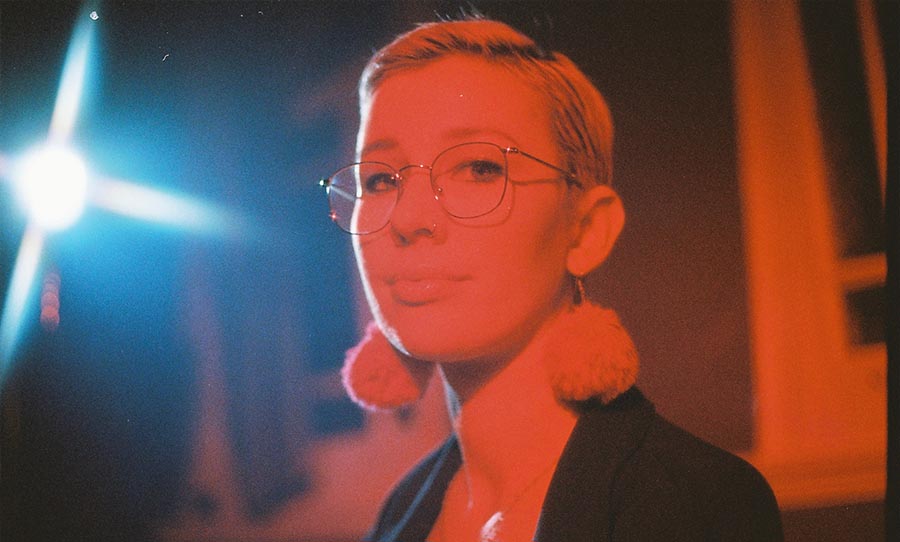
LILY: What artists have influenced you in particular for Harley Mavis?
HARLEY: Courtney Barnett has been a big one, also Middle Kids, Liza Anne, even a bit of Gang of Youths. And I guess really early Florence & The Machine, like the Cosmic Love album – amazing.
Following on from influences, who has influenced you recently?
LILY: Recent influences for my band specifically, well I really like a lot of the bands our age that are coming out of the UK. Bands like Shame, I saw them at The Lansdowne, thought they were great. Car Seat Headrest… I dunno I guess like bands that have good song writing and a really classic rock sound because that’s what I want to replicate in my band. Also! Really weirdly getting into The 1975 because I seemed to have just missed that when I was in high school and discovering them now. I’m also really aware that I don’t want to just listen to stuff that I gravitate towards because then my writing would be very derivative of what I’m listening to.
HARLEY: So I guess in terms of your writing, what does that kind of practice look like?
LILY: I have a pretty formulaic way of writing now, and I’ve found what really works for me. I kinda have a constant stream of prose written in like a stream of consciousness way in notes on my phone or a book and then when I have a spare minute to look at it, I’ll go back over what I’ve written and try and formulate it into something. I find a theme naturally emerges from it and I’ll pick certain lines which then forms a structure for a song which I then just put to music.
HARLEY: Coming from a folk background and being used to writing folk music, do you feel that’s influenced the way you write or had an impact on your writing style?
LILY: Haha actually people won’t even know this about us but we started out as folk musicians! I think it was really good. I mean it’s like a lot of kids in high school, you only have a guitar and vocals because you’re not in the crowd of bands so you just write music by yourself. I think it’s taught me a lot and I’m really glad I started out like that. I always knew I wanted to have this band sound but timing wise it was right until very recently. But I do miss playing acoustic live and I still write all my songs on acoustic.
HARLEY: What was it about rock music that made you want to transfer from being a folk artist?
LILY: It’s just sorta what I’ve always been into and what my sister Grace and I were raised on. We just really didn’t have the chance to in high school because it wasn’t really on our radar… so I just had to wait for Grace to finish school and move up here so we could start it. It was just kinda waiting for the stars to align and it just sorta made a lot of sense to start CLEWS.
You started working in music quite young – which it seems like to people that you’ve just popped up but you’ve been in the game for quite sometime – what do you think has been your steepest learning curve so far?
HARLEY:I think the biggest one was when I was 17 I just wanted to make music work so much, and I was really not knowledgeable about the industry at all, and I was doing the folk music thing that I found myself in a situation where I signed a contract expecting so much from it but in the end gaining very little from it. In the end it did spur considerably and I think from that I learnt that you can’t put a price on your creative control and how important it is to be clear as to what you want. I learnt a lot from it and I feel like I grew as a musician and as a business woman from that experience.
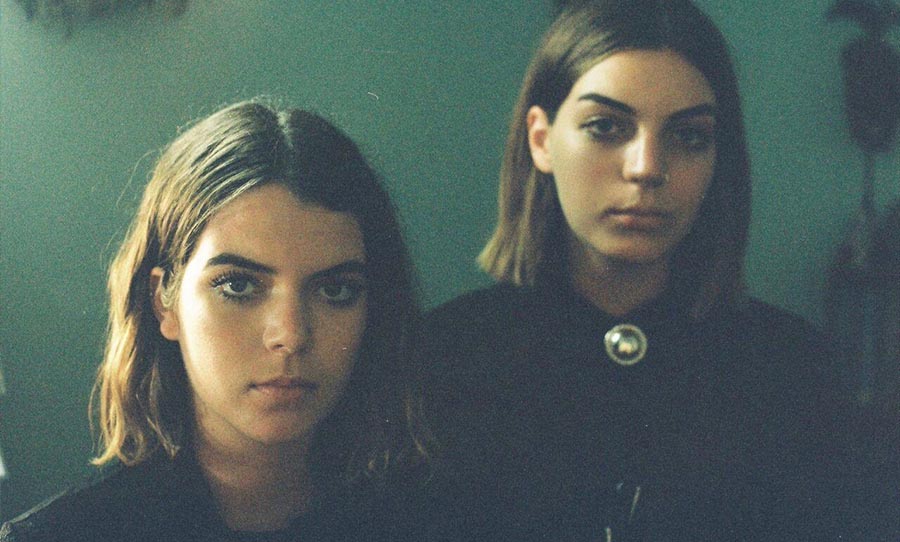
LILY: Talking about DIY musicians, have you found the way we consume music having a positive or negative impact on you personally?
HARLEY: I think they’ve definitely had an impact on the way audiences consume music and the attitudes around it. Coming out of an illegal downloading era it’s so great to be able to get a service that allows you to track how many times it’s getting streamed and whereabouts in the world these streams are coming from. Yeah it’s not the $1.69 payment but you are getting at least some renumeration for your work. It has opened doors in discovering and getting discovered too, so yeah it’s got a long way to go but it’s definitely a thousand times better than where we were 10 years ago.
LILY: Most of you won’t know this but you work behind the scenes in the music industry. Do you find it overwhelming working in the industry, being so emerged in the local scene and also being an artist?
HARLEY: I think it’s great! I was already pretty knowledgable about the local scene and local artists just doing the Harley Mavis stuff, but then working in it, it has just been so eye opening not just in a local sense but just how many amazing Australian acts there are. I think it’s been really really good and it’s making me more educated.
How does it feel going from an entirely independent artist to having an entire team around you?
LILY: I love it. I love our team, it makes life so much better. I did romanticise the whole DIY thing before and how satisfying it is booking shows and self managing, but now we have a solid team around us and it’s great. It’s also about letting go and letting people that are really good at their jobs do their jobs. It’s like my job is to be a good songwriter and performer, that’s my forte and I’m not going to try and pretend it’s something else.
HARLEY: Do you feel like being a female in the industry you have to prove yourself a bit more?
LILY: I think there have been so many amazing bands recently like Camp Cope and RACKETT that have made it so much easier for us to succeed in the industry with starting a conversation around it. And I think the conversation around gender is so obvious and I think it’s a great time to be a female artist in the industry.
Talking about crowds, do you find it easier to perform to a really small audience or to s really big audience?
HARLEY: I would have to say playing to a really small audience is way more nerve wracking than playing to a huge audience. Especially wen you can see everyone’s faces. It’s terrifying haha!
LILY: Who’s your sounding board for new songs?
HARLEY: I show my girlfriend when I write new stuff. And I get nervous because you’re showing a little creative baby. But she’s always great and always really honest.
LILY: Is there anything that makes you nervous about performing?
HARLEY: Yes! Because I’m so used to playing acoustic guitar it’s kind of second nature, playing electric makes me so nervous because I have to put 100% of my energy into not messing it up! But I don’t get too nervous to perform I just get pretty excited.
LILY: Do you write purely just for Harley Mavis or do you write other songs in general?
HARLEY: I don’t tend to close myself off to writing solely for one thing. I write predominately for Harley Mavis but I also will write whatever and just roll with it.I got into the habit of writing lots of prose like you said and draw from that when I sit down and write music.
You grew up in a really musical household, how do you think that shaped your artistry?
LILY: I think that was really important. Especially important for singing because CLEWS is all about the vocal harmonies and that comes directly from all the singing we did at home. Like singing with Mum and Dad who have a really good ear for harmony and it kind of just got passed down onto us. I don’t really know how I would have gotten into music if Mum and Dad weren’t so into it so I’m really grateful for that.
How did you get into music?
HARLEY: I used to be in a lot of choirs, did a lot of eisteddfods back in my hometown, Bundaberg. And yeah mum got me into an eisteddfod when I was five and yeah it just began from there. I got really into choirs and classical singing, found my way into musical theatre then folk music and here I am!
LILY: Did you ever have any musical lessons, like instruments?
HARLEY: Yeah I had violin (haha) which I used to do in the eisteddfods! I can’t play it anymore.
LILY: Are you glad you started out wanting to do music at such a young age?
HARLEY: Yeah definitely! I just knew from the very first moment I ever performed at that eisteddfod when I was five I couldn’t not do it. Like I just remember going to my mum straight after I’d performed, having had this huge rush and said “I just want to do it again!”
LILY: Have you ever wanted to give up music before you really even got started?
HARLEY: Yes, after that contract experience souring, I was working as a full time cover gig musician doing three to five gigs a week, for two or three years. I was also doing a lot of booking for artists – which I really really enjoyed – but I found myself running completely into the ground, and that there was no end goal or game plan. And so I got really sad and I eventually said this is not a sustainable way to live my life right now so I stepped away from it for a year. Although I got mad fomo it was such a good decision because I came back knowing what I wanted and feeling refreshed.
LILY: If you knew you didn’t have a musical bone in your body what would you do instead?
HARLEY: I would love to be able to dance – because I’m a TERRIBLE dancer – but probably if my mind actually worked in that way do something in like biology. Which is far fetched because my mind does not work in that way.
What about you Lily?
LILY: I would either do something in my criminal justice degree like juvenile justice or as a total hypothetical a tattoo artist. But I can’t draw, I have shaking hand, and I don’t like touching skin.
HARLEY: How do you feel growing up in a small town shaped how you write and perform?
LILY: I think it was great because I feel like if I just grew up in the city I’d be writing about the cites and the external world because you know the city is kind of beast of its own, whereas I found in a small town I could write about the internal world more.
HARLEY: Do you remember a distinct time in your life that made you want to do music?
LILY: Well my dad was in a festival band back in the 90s/00s, when we were very young and they were touring the States and it was just so much fun, because we’d be around these people and be the cute kids selling merch at the tent. And I don’t know it was just so much fun, because I was a really young kid in that world just loving life. I think that really instilled in me that yes, this is really fun and I want to do that.
HARLEY: If you couldn’t play indie rock music what genre would you choose?
LILY: Classy country and blue grass music hands down. I hope I write a country album one day haha.
Listen to Harley Mavis’ debut single No Chance here, and CLEWS’ debut single Museum here.
